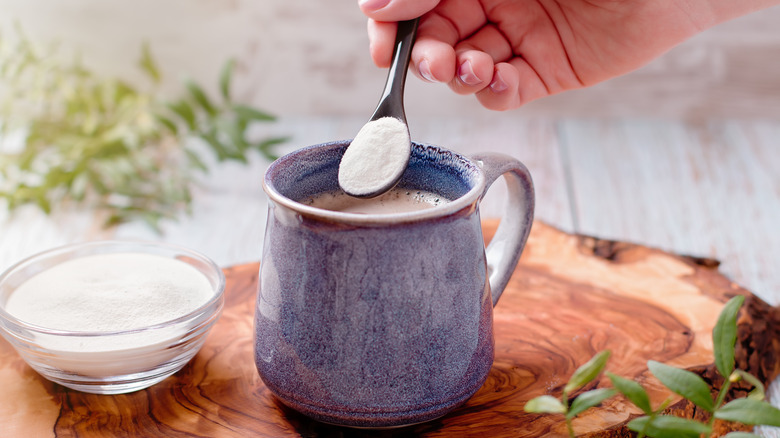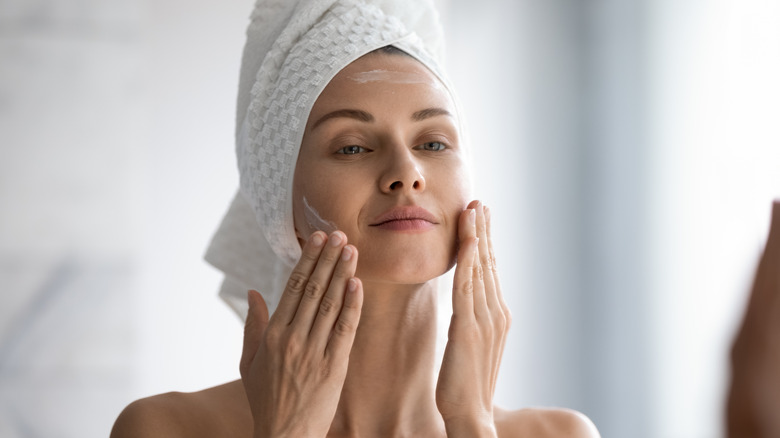This Is What Taking Collagen Can And Can't Do For You
If you're a beauty aficionado, chances are you've done your research on the mystery around collagen supplements. Impressions of the protein on the internet range anywhere from fountain of youth miracle product to total hoax. So, what is the truth?
Collagen comes from the Greek word "kólla", which translates to glue, which is fitting because it is essentially the "glue" that keeps many major bodily components together (via Healthline). Collagen is an incredibly important building block of the body. In fact, it is the most abundant protein in the body, making up about one-third of its protein composition. Collagen is a vital part of making up bones, skin, and muscles — it can even be found in the corneas and teeth.
There are four types of collagen found in the body, each with its own unique function. The most abundant is Type I, which accounts for 90% of the body's collagen and is found in bones, skin, teeth, etc. Type II collagen is less dense, and can be found in the elastic cartilage that softens the areas around your joint. Type III supports the structure of muscles, organs and arteries, and Type IV aids in filtration and is found in layers of the skin. Now that we know the basics, keep reading to learn more about the pros and cons of collagen supplements.
Collagen promotes skin elasticity and hydration
While it's by no means the fountain of youth, there is evidence backing the claim that increasing your collagen intake can have anti-aging effects on the skin (via Healthline). Collagen is a major component of the skin, and as the body ages it produces less and less, which is what leads to dryness and the formation of wrinkles.
In one eight-week study, women who took a supplement containing 2.5-5 grams of collagen had noticeably less skin dryness and significantly higher skin elasticity than women who did not take the supplement. Another study performed over 12 weeks found similar results and even wrinkle reduction in women who drank a collagen beverage supplement every day versus women who did not. The reduction of wrinkles from using collagen supplements has been attributed to the supplements' ability to jump start the body's own production of collagen. There have been claims that collagen also works to reduce acne, however there is not enough evidence to support that claim.
Collagen can help counter bone loss and alleviate joint pain
Type II collagen is a major part of the cartilage that surrounds bones and joints and allows them to move smoothly (via Web MD). According to a report from Penn Medicine, there are many ways that collagen supplements can improve your bone and joint health. Osteoarthritis— the most common form of arthritis, which breaks down the cartilage in your joints, making them more susceptible to injury— causes bones to rub together, and leads to pain and swelling around the joints. Collagen supplements may be able to help keep the tendons together, and may even help rebuild cartilage.
The report further suggests that collagen supplements may be able to ease lower back pain by repairing lost collagen that keeps the spine intact. Dr. Louise Vlachos, D.O., a physician at Penn Family and Internal Medicine Cherry Hill, recommends collagen supplements for overall bone health as well, saying, "your bones are mostly made of collagen, which keeps them strong and healthy. If your collagen levels are low, it can cause your bones to become weak and risk breaking."



